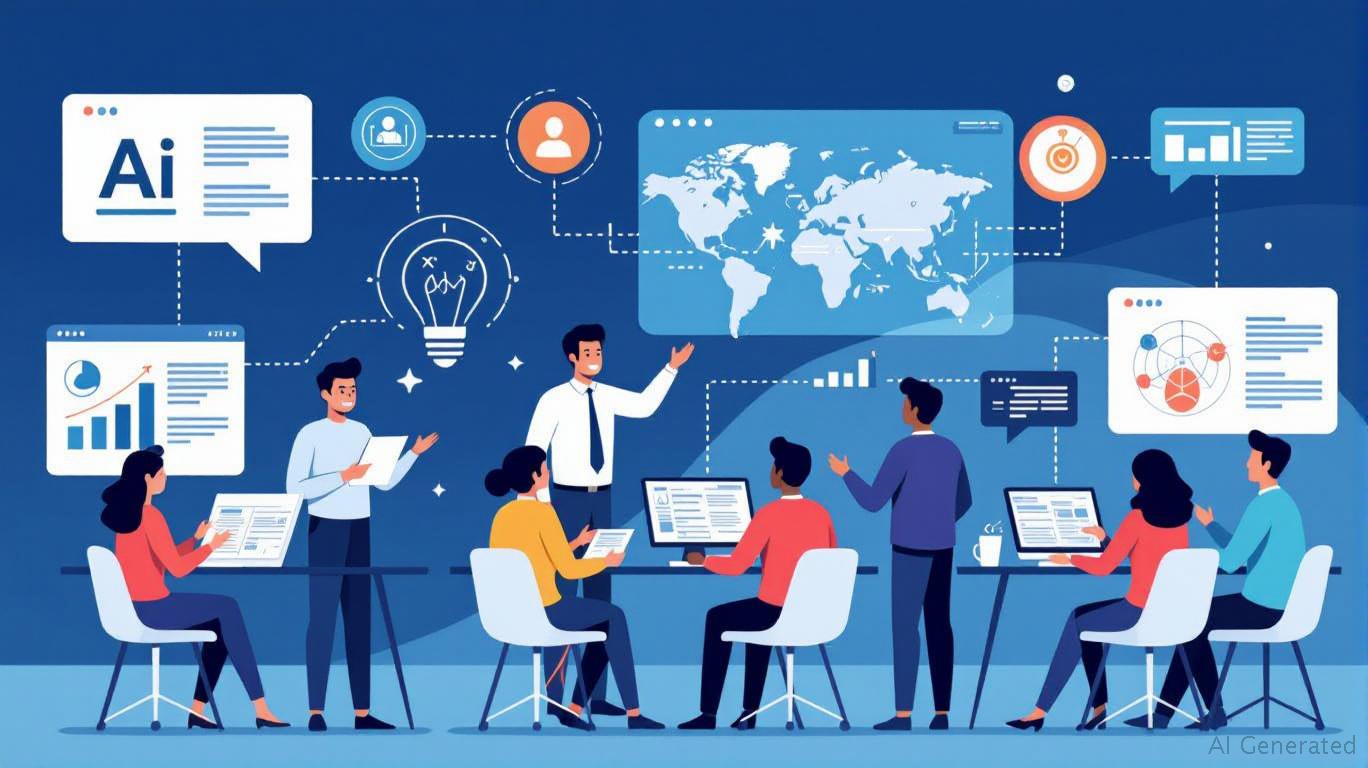Julian WestTuesday, Jul 8, 2025 12:11 am ET
![]() 38min read
38min read
The rise of artificial intelligence (AI) has fundamentally altered the U.S. workforce landscape, creating both challenges and opportunities for employers and employees alike. As AI-driven tools permeate industries from healthcare to finance, the demand for AI literacy programs has surged. Workers seek to upskill to remain competitive, while employers grapple with the dual imperatives of productivity and ethical AI integration. This confluence of needs presents a golden opportunity for EdTech and corporate training firms to capitalize on a rapidly evolving market.

The Demand: Workers Want AI Skills, Employers Are Lagging
Recent data underscores a stark disconnect between worker aspirations and employer support. According to D2L's 2025 report Upskill with Purpose, 75% of U.S. employees aim to develop skills to advance their careers within three years, yet only 44% receive structured AI training from their employers. This gap is particularly glaring in interactive learning: while 45% of workers cite real-time feedback modules as the most effective training method, just 52% have access to employer-sponsored programs. The result? A growing reliance on self-directed learning (56% of workers), which often lacks rigor or oversight.
Meanwhile, job market trends confirm the urgency. Lightcast data reveals that AI skill requirements in U.S. job postings have quadrupled since 2010, now comprising 1.7% of all postings. Roles in computer science and mathematics dominate this demand, but even non-technical fields like healthcare and customer service increasingly mandate basic AI proficiency.
The Prize: EdTech and Corporate Training Firms Positioned for Growth
Firms that deliver scalable, interactive AI training solutions are poised to capture significant market share. D2L, a leader in corporate learning platforms, has already seen its stock rise 35% year-to-date, reflecting investor confidence in its adaptive learning modules and partnerships with Fortune 500 companies. Similarly, Moodle—a platform used by over 100 million learners—reports surging demand for its AI-integrated training tools, though its open-source model complicates direct stock analysis.
Investors should also watch for companies blending AI literacy with human-centric skills (e.g., critical thinking, collaboration). For example, platforms like Coursera (COUR) and LinkedIn Learning (part of Microsoft's MSFT ecosystem) are expanding their AI-focused courses, targeting both individual learners and enterprise clients.
The Risks: Navigating Ethical and Practical Challenges
Despite the opportunities, pitfalls loom. OwlLabs' 2025 survey found that 44% of companies have experienced errors due to AI misuse, while 12% of employees admit letting AI complete their training on their behalf—a red flag for quality control. Firms must address these risks through robust governance frameworks and transparent career pathways that tie training to tangible rewards like promotions or pay raises.
Additionally, regulatory scrutiny of AI ethics could disrupt unprepared companies. Investors should prioritize firms with clear compliance strategies and partnerships with industry bodies like the Partnership on AI.
Investment Strategy: Target Scalable, Adaptive Platforms
The optimal plays are companies offering:
1. Interactive, AI-driven learning tools: Platforms with real-time feedback and adaptive curricula (e.g., D2L's Brightspace).
2. Enterprise partnerships: Firms with strong ties to corporations seeking to upskill their workforces (e.g., Coursera's Skills for All program).
3. Human-AI synergy training: Programs balancing technical AI skills with soft skills like problem-solving (e.g., LinkedIn Learning's leadership courses).
Avoid overhyped startups without proven employer networks or scalable models.
Conclusion: A New Era of Workforce Development
The U.S. workforce is at an inflection point. Employees are hungry for AI skills, employers are under pressure to deliver, and EdTech firms hold the keys to unlocking this potential. Companies that combine cutting-edge AI training tools with ethical frameworks and human-centric design will dominate this space. For investors, the time to act is now—before the competition for talent in the AI era intensifies further.
As the data makes clear, the demand is real. The question is: who will meet it?







 English (US) ·
English (US) ·